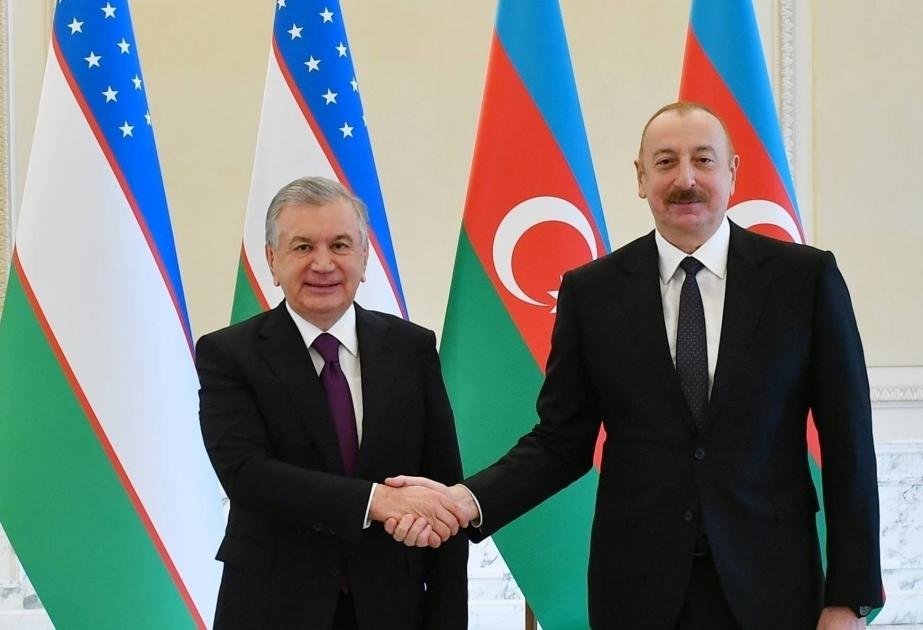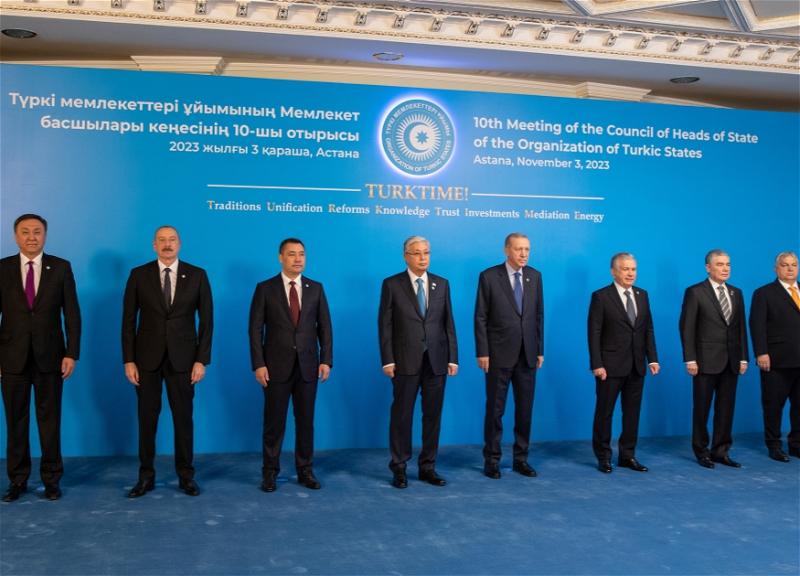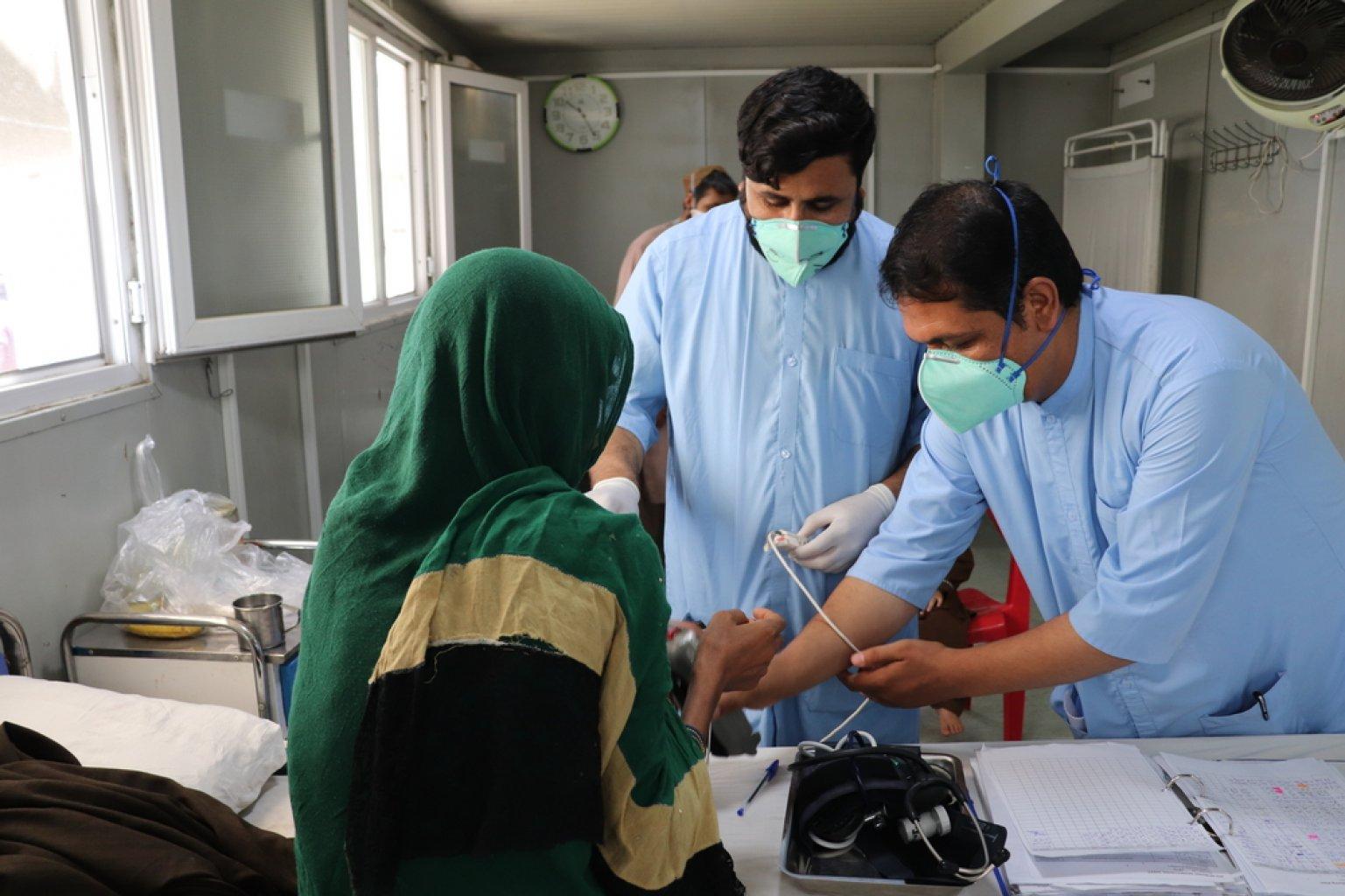China, Russia, US vying for influence in Central Asia Uzbek political expert on Caliber.Az
Caliber.Az features an interview with Ranohon Tursunova, an Uzbek political scientist and doctor of historical sciences.
- How do you assess the current level of Azerbaijan-Uzbekistan ties?
- Ties between Azerbaijan and Uzbekistan have a long history, it is an important aspect of bilateral relations. Both countries occupy an important position in their regions and have similar culture, history and folk traditions.
Recent years have seen an intensification of cooperation between Azerbaijan and Uzbekistan in various fields such as economy, trade, energy, tourism and education. Both states actively cooperate within the framework of international structures such as the UN and the Organisation of Turkic States.
A particularly significant area of cooperation between Azerbaijan and Uzbekistan is the energy sector. Let me remind you that Azerbaijan is a major producer of oil and gas, while Uzbekistan has vast reserves of hydrocarbons. It should also be noted that on February 7, Uzbek leader Shavkat Mirziyoyev called Ilham Aliyev and congratulated him on his convincing victory in the presidential election. During the telephone conversation, the heads of state expressed confidence in the further development of friendly and fraternal ties, as well as strengthening cooperation between the two countries, and exchanged views on the prospects of bilateral relations and future contacts.

- How relevant the topic of the Middle Corridor for Uzbekistan is? What do you see as the peculiarity of the Zangezur route?
- The restoration and development of this transport route is of great importance for the region and international trade in general. The Ancient Silk Road was the main link between East and West, facilitating the exchange of goods, culture and ideas.
In the long term, the Middle Corridor has global transit potential, especially for Central Asian countries. The fact is that it provides an alternative way to transport goods between Asia and Europe, bypassing longer sea routes or complex land routes. This is especially relevant in light of the development of China's One Belt, One Road initiative, which aims to build transport infrastructure in Eurasia.
In turn, the Zangezur corridor is a key element of the Middle Corridor. Its launch will open new prospects for transit trade and economic development in the region.
It is no exaggeration to say that the uniqueness of the Zangezur corridor lies in its geographical location. It provides a direct link between Azerbaijan and Turkey, opening access to Turkish ports and railway system, which markedly reduces the time and cost of cargo delivery between Asia and Europe. In addition, the Zangezur Corridor by default promotes infrastructure development, including roads, rail and air transport links, which creates additional opportunities for economic growth in the region.
Thus, the Middle Corridor, including the Zangezur Corridor, will contribute to the integration of regional economies and strengthen interaction between countries.
- Turkish president has come up with the idea of creating a single Turkic alphabet, and there are proposals to create a single Turkic currency. How do you assess all these proposals and the prospects for the development of the Organization of Turkic States (OTS) in general?
- President Erdogan's proposals to create a single Turkic alphabet and a single Turkic currency are generating much interest and discussion in the Organization of Turkic States. These initiatives aim to strengthen communication and cooperation among Turkic states and lead to deeper integration within the community.
The creation of a common Turkic alphabet has practical significance for linguistic interactions and cultural exchange between the OTS states. A common alphabet will simplify communication and teaching of languages of other Turkic peoples, creating a common linguistic space. However, it should be taken into account that each state in the community has its own peculiarities and traditions, so it is necessary to reach a compromise when developing a common alphabet, taking into account the interests of each participant.
Regarding the creation of a single Turkic currency, I would observe that many factors, including economic and political aspects, should be taken into account. The introduction of a single Turkic currency, on the one hand, can help strengthen economic ties between the OTS states and facilitate trade and investment within the community. However, such a step should be preceded by careful analyses and planning to take into account the differences in economic structure, inflation and stability of the participating states.
In general, the prospects for the development of the OTS look encouraging. There has been significant growth in cooperation among Turkic states in recent years. The creation of common community instruments, such as a single bank, can help to better manage financial resources and stimulate economic integration. In addition, strengthening socio-cultural ties, such as a common alphabet, will help to foster greater understanding and harmony among the states.

However, there are various challenges and obstacles to the development of OTS. Differences in political systems, economic development and interests of states can slow down the integration process. Therefore, in my opinion, diplomatic efforts, dialogue and compromise solutions, as well as taking into account the national interests of each state within the community, should be the key factors for the successful development of OTS.
- China, Russia and the West are competing for influence in Central Asia. How is this rivalry felt in Uzbekistan?
- The fight between China, Russia and the United States for influence in Central Asia is indeed taking place. Each of these countries seeks to strengthen its economic, political and military ties with the states of the region.
Presently, one could assert that the influence of China and Russia in Central Asia surpasses that of the United States and Western nations. China is actively channelling investments into the region's economy via its "One Belt, One Road" initiative, while Russia sustains its longstanding connections with the post-Soviet states.
Regarding Uzbekistan, it is actively pursuing collaboration with diverse nations to safeguard its security and promote economic development. In recent years, Uzbekistan has displayed an increased inclination towards cooperation with China and neighbouring countries, all the while maintaining robust ties with Russia.
- How are relations between Tashkent and Kabul developing? For example, Kazakhstan has removed the Taliban from the list of terrorist organisations. How is the Taliban's power seen and felt in Uzbekistan?
- Relations between Tashkent and Kabul have become closer and more constructive in recent years. Uzbekistan actively supports efforts to peacefully resolve the conflict in Afghanistan and co-operates with the Afghan authorities in various areas, including the economy, security and cultural ties.
In light of the evolving dynamics of Taliban authority in Afghanistan, Uzbekistan remains vigilant and responsive to the situation. Following the Taliban's assumption of power, Tashkent conveyed its willingness to engage in dialogue and collaboration with the new regime. Simultaneously, it underscored the importance of upholding human rights and ensuring security in the region.

Kazakhstan's removal of the Taliban from the list of terrorist organizations may be related to an attempt to establish a dialogue with the new Afghan authorities and maintain stability in the region. I would note again that Uzbekistan also seeks cooperation with the new regime in Afghanistan, but remains vigilant and mindful of its security interests.
Speaking at the 78th UN General Assembly in 2023, President Mirziyoyev of Uzbekistan paid attention to the Afghan issue in his report, pointing out that international security is directly linked to the processes in Afghanistan. A new situation has emerged in that country, which requires special approaches to resolving the Afghan issue.
In my view, it would be a grave mistake to leave Afghanistan to face its problems alone again. Ignoring, isolating and imposing sanctions worsens the plight of the ordinary Afghan people.
We believe that humanitarian assistance to the Afghan people must not wane. We call for the development of appropriate mechanisms for channelling Afghanistan's frozen international assets to address pressing social problems in that country. We need a peaceful and stable Afghanistan that participates in regional cooperation processes and is open to mutually beneficial partnerships with its neighbours and other countries. In that regard, I believe that it is of fundamental importance to develop a coordinated and constructive position on Afghanistan under the leadership of the United Nations.








